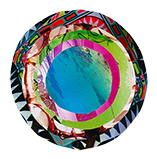Characteristics of overdrive
/
A few years ago, a client came to me for help managing her busy work and family life. She was an expert in her chosen profession in the wellbeing sector. A super-capable, bright, enthusiastic self-aware woman in her 40’s, she was married with school-age children. Fit and energetic with a positive can-do mindset, she was good at looking after herself and confident. She looked great, had a beautiful home and strong family and friend relationships.
On the outside, she looked for all the world like the proverbial success story. Cool, calm and collected, happy, and with all the “right” ingredients of life in place. She looked like she’d got life sussed!
That was the outside.
Our work together delved inside, and as she was a particularly able and articulate coachee, we got deep quickly.
This is how she described her experience:
“My whole life is dictated by time and getting to places on time. To make this work, I have to do so much. I’m tired of having to be so organised all the time. Every minute of every day has to be productive. To have a gap feels like a waste of time. It’s all too serious. I’ve forgotten how to have fun. I don’t have any time off, and I keep adding more on to my already full schedule. There’s no slack. I’m stretched to absolute capacity and unable to take my foot off the accelerator.”
She went on to say she gets overwhelmed and anxious and forces herself to keep going. She was at risk of burnout.
I feel exhausted just thinking back to her words. I’m sure you too get the sense of how demanding her lifestyle was – perhaps you can see some similarities in your own life. She knew that for her own health and happiness, as well as that of her family, she needed to take action.
Working with this particular client consolidated my understanding of a way of being that I titled “overdrive”. I knew the overdrive territory well. I had been recovering from overdrive for some years at this point and had worked with several clients in senior roles in corporate and public sectors with the same tendency.
What I learned through my own experience of overdrive and then corroborated while coaching other over-drivers, is this:
Overdrive is a habit of relentlessly pushing oneself towards goal posts that move further away, usually across most aspects of life. There’s always a new achievement to reach for. Good enough isn’t a thing for someone stuck in overdrive. It has got to be the best. Rarely, if ever, do over-drivers own their successes and achievements. They’re usually too busy focusing on what’s still to do, what’s next, and on the aspects where their performance fell short.
Want to learn more about recovering from overdrive? If this article is resonating with you, sign up below to receive my free video about reclaiming your enjoyment.
Over-drivers are incredibly productive and highly effective. They create impressive results. They are ideas people and innovators; they pursue growth, development and improvement. They care passionately about their performance and the bigger picture. They are often leaders and change makers, people who are on a mission to make a difference. Over-drivers rise to the top in their organisations, communities and professions.
What fuels this industrious behaviour usually includes some version of attaching one’s self-worth to outcomes and outputs. The over-driver prioritises creating results over and above their own experience of doing so. They measure their value in deliverables and believe the rest of the world does too. So, they push themselves to do whatever it takes to deliver, even when that means going beyond the point of endurance, over-ruling any complaints their body and mind might make. Or the damage it might be doing to their most precious relationships.
Over-drivers can keep this behaviour up for years, even decades. However, as you saw in the words of my client and may even know from your own experience, there is a cost. The cost is lack of choice, joy, freedom, satisfaction and an inability to rest or simply be. Unchecked overdrive can cause problems with physical and mental health and well-being as well as relationships and work-life balance.
Think you might be in overdrive? Take my short questionnaire and find out now. If you are, the good news is two-fold. One, over-drivers can change the balance and recalibrate to a different way of being. Two, over-drivers have a lot in the bank to fall back on, in terms of expertise, reputation, even assets, because they have been on it all these years.
I teach my coaching clients how to put this into practice.
The way to start is to begin putting personal wants and needs on the to-do list. Start prioritising self-care. For the over-driver, this is much easier to say than do. It usually goes 100% against the grain. However, like learning to ride a bike, it feels impossible at first, you wobble and even fall down, but with practice and help you begin to get the hang of it. You begin to gain confidence and even start to like the feeling. In time the over-driver who learns to value themselves can turn into the freewheeler, covering big distances, achieving a lot, but without the resistance. It’s a wholly different experience.
I recommend it.
If overdrive is affecting your enjoyment at work too, there are actions you can take now for some quick wins and to set the foundations for the longer term – learn my proven strategies here.
Further helpful reading…
If you liked this post, why not try:
Loss of enjoyment is a cost of overdrive
The difference between outward perception and inner emotions



